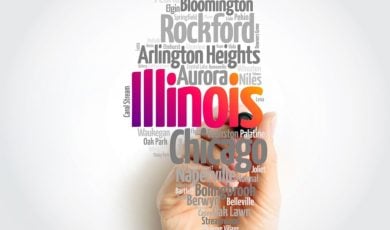Efforts to expand online gambling in Maryland have stalled after residents overwhelmingly voted against the proposal. A recent Lake Research Partners poll found that many Maryland residents are firmly opposed to expanding online casinos in the state.
The poll showed that 71% of registered voters oppose the move, signaling strong public resistance. These results cast serious doubt on the likelihood of passing legislation to legalize real-money online casinos anytime soon.
Poll reveals strong resistance to online casinos in Maryland
Commissioned by the National Association Against iGaming (NAAiG), Lake Research Partners surveyed 650 registered Maryland voters from Sept. 15-18, 2025. Before conducting the survey, the research organization provided residents with a clear explanation of what expanding online casino gaming would entail. After voters were informed that online gambling involves “24-hour access to casino games on mobile devices,” opposition to the proposal increased significantly.
Of the 650 respondents, only 17% viewed online casinos favorably despite understanding the implications for the state. Additionally, half of the survey respondents said they were unaware of plans to expand online casinos in Maryland.
Why Marylanders oppose online casino growth
For many residents, the idea of constant access to real-money casino games and the potential risks they pose feels inherently wrong. Critics argue that online casino gaming could negatively affect families, primarily by increasing exposure for children. Others warn that expanding online gambling may reduce revenue for existing land-based casinos in the state.
A 2024 report from the Maryland Lottery and Gaming Control Commission supports this claim, forecasting that legalizing online casinos could lead to a 10% decline in brick-and-mortar casino revenues. For these reasons, state lawmakers pushing to expand online casino games are likely to face significant resistance. Previous attempts to pass such legislation have failed, and little has changed in that regard.
Failed attempts to legalize online gambling in Maryland
Several attempts to legalize online casinos in Maryland have been unsuccessful. In the past two legislative sessions, bills sponsored by Delegate Vanessa Atterbeary and Senator Ron Watson met stiff opposition, primarily from casino operators and unions. Atterbeary’s 2024 bill passed the House but failed in the Senate.
With the recent survey results, Maryland lawmakers face a dilemma. Pushing for online casinos could result in increased backlash and stronger opposition. However, the potential revenue from the gaming industry makes it an appealing option that may be difficult to abandon.
New strategies to overcome online gaming opposition
Lawmakers could explore alternative approaches to expand the industry. One strategy is to position online casinos as a complement to land-based sites rather than competition. They could also propose bills that limit the market size of iGaming platforms while enforcing stricter consumer protection laws.
Increasing educational campaigns to help residents better understand the online gaming industry could soften resistance to such legislation. Lawmakers may push for a vote after sufficient public awareness programs have been conducted.
Any attempt to legalize online casinos would likely require a public referendum in November 2026. If that occurs, Maryland voters will need to formally state their position on the issue. Should a bill pass, iGaming operators would need to determine how to proceed in the Old Line State.
Some platforms may advocate for hybrid models linking real-money online casino access to existing land-based establishments. Others are expected to implement strict age verification, geofencing, and self-exclusion measures to address concerns and promote safer gambling experiences. However, these projections are unlikely to materialize if upcoming bills fail. For now, the future of online casino gaming in Maryland remains uncertain.









